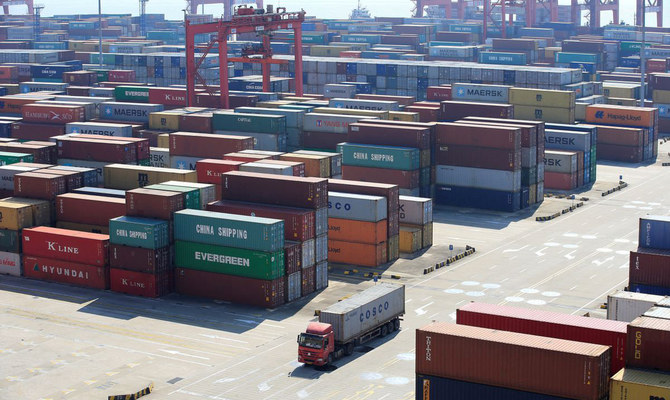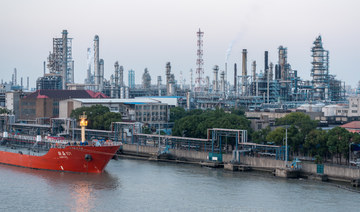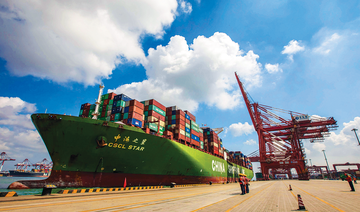RIYADH: Saudi Arabia’s Tadawul All Share Index slipped on Sunday, losing 67.36 points, or 0.55 percent, to close at 12,217.05.
The total trading turnover of the benchmark index was SR5.33 billion ($1.42 billion), as 78 of the stocks advanced while 147 retreated.
On the other hand, the Kingdom’s parallel market Nomu rose 109.49 points, or 0.40 percent, to close at 27,195.93. This comes as 30 of the stocks advanced while as many as 27 retreated.
Meanwhile, the MSCI Tadawul Index slipped 7.05 points, or 0.46 percent, to close at 1,530.49.
The best-performing stock of the day was Saudia Dairy and Foodstuff Co. The company’s share price surged 9.97 percent to SR386.20.
Other top performers include Saudi Chemical Co. as well as Al-Jouf Agricultural Development Co.
The worst performer was Thimar Development Holding Co. whose share price dropped by 9.94 percent to SR14.14.
Other subdued performers included Tanmiah Food Co. and Walaa Cooperative Insurance Co.
On the announcements front, Etihad Etisalat Co., also known as Mobily, released its interim financial results for the period ending on March 31.
According to a Tadawul statement, the company’s net profit hit SR638 million in the first quarter of 2024, reflecting a 37.2 percent surge compared to the same quarter last year.
The increase was mainly driven by a rise in gross profits and a jump in earnings before interest, tax, depreciation, and amortization. While operating expenses also increased, financial charges, zakat, and income tax decreased.
Moreover, the Tanmiah Food Co. also announced its interim financial results for the first three months of 2024.
A bourse filing revealed that the firm’s net profit reached SR21 million by the period ending on March 31, unchanged in comparison to the corresponding period in 2023.
Furthermore, Elm Co. announced its interim financial results for the year’s first quarter.
According to a Tadawul statement, the company’s net profits climbed 7.1 percent to reach SR345 million in the first three months of 2024 compared to the same period a year earlier.
This increase is primarily attributed to higher revenue, operating expenses, and income from Murabaha deposits.
Allianz Saudi Fransi Cooperative Insurance Co. also announced its interim financial results for the period ending on March 31.
A bourse filing revealed that the firm’s net profit stood at SR9.98 million at the end of the first quarter of 2024, up 4.01 percent when compared to the same quarter a year ago.
The increase in net profit after zakat and income tax for the current quarter compared to the same quarter of previous years is primarily due to an 86 percent rise in net investment income.
In addition, the United International Transportation Co., or Budget Saudi, announced its interim financial results for the first three months of 2024.
According to a Tadawul statement, the company’s net profit hit SR69.7 million in the first quarter of 2024, reflecting a 0.565 percent surge compared to the same quarter last year.
The surge in net profits is mainly attributed to steady growth in both long-term and short-term rental revenues.
Saudi Electricity Co. also announced its interim financial results for the period ending on March 31.
A bourse filing revealed that the firm’s net profit stood at SR897 million at the end of the first quarter of 2024, up 86.8 percent compared to the same quarter a year ago.
The surge in net profit for the current quarter compared to the corresponding quarter of the previous year is primarily attributed to increased revenue requirements, new earnings from development projects, and higher revenue from Dawiyat Co., among other factors.
Meanwhile, United Electronics Co., or eXtra, has announced that its shareholders approved the election of board members for the upcoming three-year term beginning May 13.























